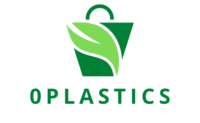In the age of heightened environmental awareness, consumers are increasingly seeking eco-friendly alternatives to traditional plastic products. A notable development in this pursuit is the emergence of plastic-free marketplaces, which have become hubs for exploring and discovering a diverse array of sustainable and environmentally conscious products. These marketplaces go beyond merely offering alternatives; they are catalysts for change, redefining how consumers engage with the products they use daily.
The cornerstone of plastic-free marketplaces lies in the commitment to curate products that are both eco-friendly and functional. From kitchen essentials to personal care items, these marketplaces showcase a wide range of alternatives, each carefully chosen for its minimal environmental impact. Products often feature innovative materials like bamboo, glass, stainless steel, and biodegradable compounds, providing consumers with options that align with their commitment to reducing plastic waste.
One of the primary advantages of exploring a plastic-free marketplace is the wealth of options available. These platforms serve as virtual storefronts for small businesses, artisanal producers, and established eco-conscious brands, offering a curated selection of goods that prioritize sustainability. From stylish reusable water bottles to biodegradable kitchen utensils, consumers can easily find alternatives that suit their preferences, lifestyles, and ethical values.
The educational aspect of plastic-free marketplaces is a key driver in encouraging consumers to make informed choices. Through informative product descriptions, blog posts, and interactive features, these platforms empower users with knowledge about the environmental impact of plastic and the benefits of opting for eco-friendly alternatives. This educational approach not only raises awareness but also fosters a sense of responsibility among consumers, inspiring them to contribute actively to a more sustainable future.
The product range on plastic-free marketplaces is not limited to niche or luxury items; it encompasses everyday essentials. From toothbrushes and grocery bags to food storage containers, these marketplaces address the common items that contribute significantly to plastic pollution. By offering accessible alternatives to widely used products, they make it convenient for consumers to integrate sustainable choices into their daily routines.
Beyond the individual consumer, plastic-free marketplaces play a crucial role in fostering a sense of community. Many of these platforms actively collaborate with local businesses and eco-conscious brands, creating a network of like-minded entities dedicated to reducing plastic usage. These collaborations contribute to the growth of sustainable economies and amplify the impact of the plastic-free movement on a broader scale.
As the demand for eco-friendly alternatives continues to rise, plastic-free marketplaces are poised to become pivotal players in the shift towards sustainable consumerism. By providing a curated selection of products, educating consumers, and fostering community engagement, these marketplaces are more than shopping platforms – they are agents of change in the fight against plastic pollution.
In conclusion, exploring products on a plastic-free marketplace is a journey into a world where style, functionality, and sustainability coexist. It’s an opportunity for consumers to align their purchasing decisions with their environmental values, one product at a time. As these marketplaces gain prominence, they not only offer alternatives but also contribute to a collective effort towards a plastic-free future, demonstrating that responsible consumer choices can indeed drive positive change on a global scale.
